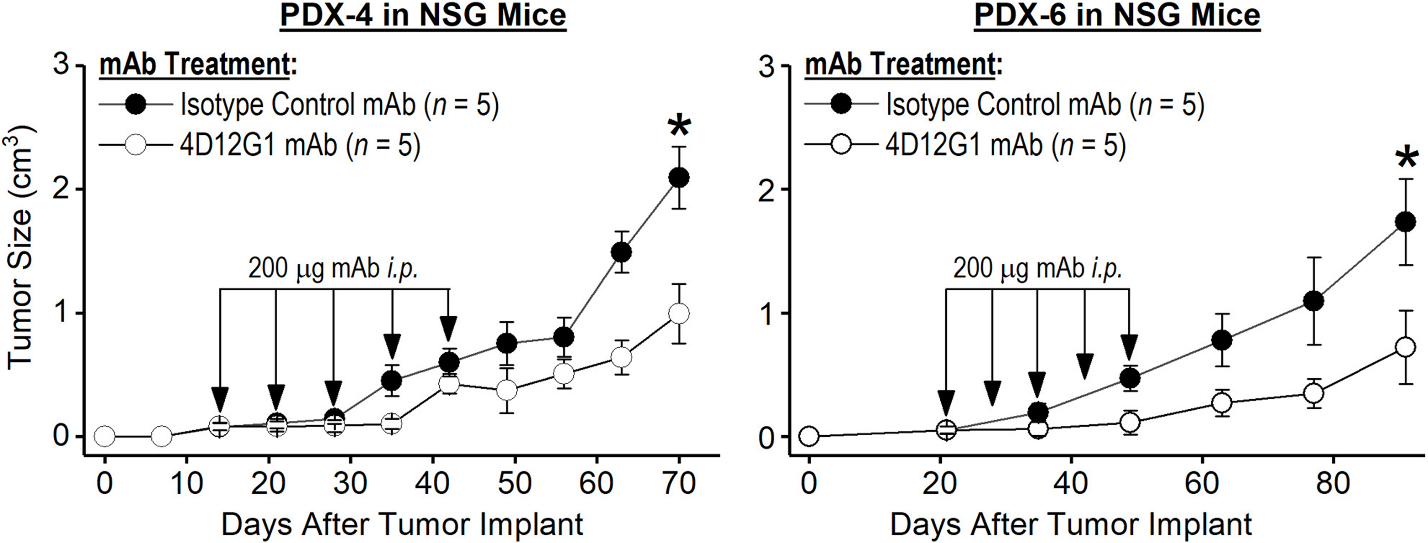Epithelial ovarian carcinoma (EOC) is the most prevalent and lethal form of ovarian cancer. An array of non-definitive symptoms associated with the onset of EOC and the lack of effective biomarkers for early detection often results in late diagnoses at advanced diseased stages resulting in high rates of disease recurrence and poor prognoses even after treatment with current standard of care that typically includes platinum-based drugs. Although often effective initially, toxicity and/or resistance to platinum-based drugs is common and frequently leads to alternative treatments with a variety of therapeutics that have historically provided variable and short-lived results.
Dr. Suparna Mazumder from The Department of Inflammation and Immunity, Lerner Research Institute, Cleveland Clinic, Cleveland, OH, USA, The Department of Molecular Medicine, Cleveland Clinic Lerner College of Medicine of Case Western Reserve University, Cleveland, OH, USA and The Case Comprehensive Cancer Center, Cleveland, OH, USA said, “The low five-year overall survival after EOC diagnoses indicates an urgent need for more effective ways to control this disease.”
"The low five-year overall survival after EOC diagnoses indicates an urgent need for more effective ways to control this disease."
- Dr. Suparna Mazumder, The Department of Inflammation and Immunity, Lerner Research Institute, Cleveland Clinic, The Department of Molecular Medicine, Cleveland Clinic Lerner College of Medicine of Case Western Reserve University, and The Case Comprehensive Cancer Center
In a prior study, Dr. Mazumder identified the extracellular domain of anti-Müllerian hormone receptor 2 (AMHR2-ED) as an ovarian protein overexpressed in the majority of human EOCs, and that vaccination against AMHR2-ED significantly inhibited the growth of mouse EOCs. She also found that the inhibition of EOC growth in mice following AMHR2-ED vaccination was due to the induction of antibodies that directly killed EOC cells bound by the antibodies.
Dr. Mazumder postulated, “If antibodies inhibit the growth of ovarian cancer in mice, then maybe a single monoclonal antibody (mAb) would be capable of inducing such inhibition of ovarian cancer in women”. That's exactly what Dr. Mazumder did in the current study. Along with her colleagues in the laboratory of Dr. Vincent Tuohy at the Lerner Research Institute, Dr. Mazumder identified and characterized a single mouse monoclonal antibody (mAb), called 4D12G1, that specifically recognizes the human AMHR2-ED protein. Dr. Mazumder found that the 4D12G1 mAb was not only capable of killing human EOCs in vitro, but more importantly, she found that injection of the 4D12G1 mAb into mice carrying primary human EOCs significantly inhibited growth of human EOCs in vivo (Figure 1).

FIGURE 1. The 4D12G1 mAb Inhibits Growth of Human EOCs In Vivo. Primary human EOC tumors were inoculated subcutaneously into immunodeficient female NSG mice. When tumors became palpable, the mice were injected intraperitoneally (i.p.) with 200 μg of either the 4D12G1 mAb or an isotype control mAb weekly for 5 continuous weeks. Treatment with the 4D12G1 mAb significantly inhibited (P < 0.0001 in all cases) the growth of primary EOC tumors generated from recently diagnosed patients and xenografted into immunodeficient NSG mice including PDX-4 (left panel) and PDX-6 (right panel). All error bars indicate ±SD.
Dr. Mazumder concludes by saying “Our results show that passive immunization with a single antibody directed against human AMHR2-ED is capable of inhibiting growth of human ovarian cancers”. In preparation for use in human clinical trials, the 4D12G1 mAb is currently undergoing a genetic modification called “humanization” whereby the mouse sequences of the 4D12G1 mAb are replaced with human sequences. Once completed, the humanized version of the 4D12G1 mAb will be tested in clinical trials as therapy against EOC.
Sign up for free Altmetric alerts about this article
DOI - https://doi.org/10.18632/oncotarget.27585
Full text - https://www.oncotarget.com/article/27585/text/
Correspondence to - Suparna Mazumder - [email protected]
Keywords - monoclonal antibody, anti-Müllerian hormone receptor type II, immunotherapy, ovarian cancer, 4D12G1
About Oncotarget
Oncotarget is a biweekly, peer-reviewed, open access biomedical journal covering research on all aspects of oncology.
To learn more about Oncotarget, please visit https://www.oncotarget.com or connect with:
SoundCloud - https://soundcloud.com/oncotarget
Facebook - https://www.facebook.com/Oncotarget/
Twitter - https://twitter.com/oncotarget
LinkedIn - https://www.linkedin.com/company/oncotarget
Pinterest - https://www.pinterest.com/oncotarget/
Reddit - https://www.reddit.com/user/Oncotarget/
Oncotarget is published by Impact Journals, LLC please visit http://www.ImpactJournals.com or connect with @ImpactJrnls
Media Contact
[email protected]
18009220957x105



